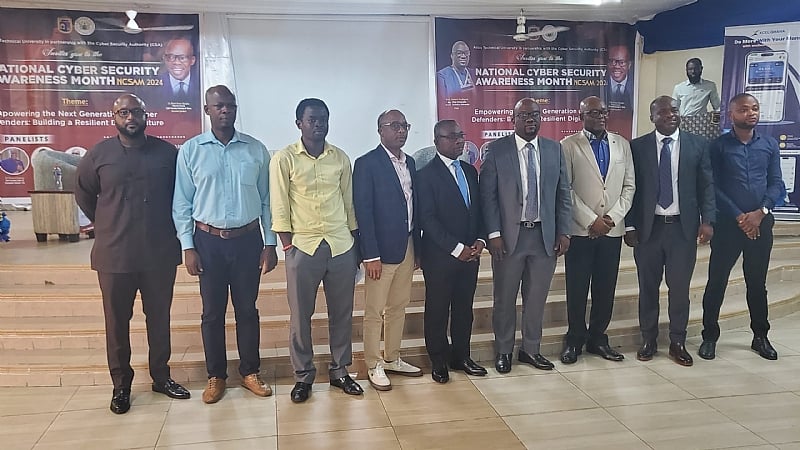In a bid to tackle the rising incidents of cyber crime, the Cyber Security Authority (CSA) has emphasized the urgent need for more skilled and ethical professionals within the cyber security sector. During the second edition of the Cyber Security Awareness Symposium in Accra, Mr. Stephen Cudjoe-Seshie, the Lead of the National Computer Emergency Response Team at the CSA, highlighted the critical shortage of talent in the industry. The symposium, themed “Empowering the Next Generation of Cyber Defenders: Building a Resilient Digital Future,” aimed to create awareness regarding the growing challenges in cyber security. Cudjoe-Seshie reported alarming figures from January to September, indicating a surge in cases of online fraud, scams, cyberbullying, and more, clearly illustrating the urgent need for action to bridge the talent gap.
According to a World Economic Forum report, the global demand for professionals in the cyber security sector is projected to reach a staggering four million by the end of the year. This figure could escalate to a shortage of around 85 million professionals by 2030, potentially leading to an $8.5 trillion loss in revenue globally. The urgency of this situation reverberates in Ghana, where the Norton Cyber Safety Insights report for 2023 revealed that approximately 36% of Ghanaians have experienced a data breach, exposing them to various risks related to their digital privacy. With reported losses from cyber crimes in Ghana amounting to GHC 49 million (roughly $4 million) last year, the call for action has never been more pertinent.
In response to these challenges, the CSA is taking significant steps to enhance the cyber security ecosystem in Ghana. As part of its mandate, the Authority has started licensing and accrediting educational institutions focused on cyber security. Mr. Cudjoe-Seshie emphasized the necessity for foreign entities coming into the country to share knowledge and skills with the local workforce as a means of building capacity. The CSA is also looking to collaborate with the Ghana Tertiary Education Commission to incorporate cyber security into the existing curricula of various educational programs. This move aims not only to train the next generation of cyber defenders but also to foster a culture of continuous learning among students aspiring to pursue careers in this crucial field.
During the symposium, Prof. Amevi Acakpovi, the acting Vice Chancellor of Accra Technical University (ATU), spoke about the transformative effect of rapidly advancing technology on society. He underscored the need for collaborative stakeholder discussions to tackle the underlying issues plaguing the cyber security landscape, such as inadequate infrastructure and the requirement for enhanced capacity-building initiatives. These discussions are essential to ensure that both institutions and individuals are adequately prepared to leverage digital technologies safely and effectively.
Mr. George Babafemi, a Fintech Consultant and Board Member of eTranzact Ghana Limited, stressed the importance of integrating a holistic view of cyber security training across all value chains. His remarks reinforced the notion that cyber security is not only a technical issue but also a business concern that requires collective efforts from various sectors to ensure comprehensive coverage. Similarly, Dr. Edward Ansong, a Senior Lecturer at the University of Ghana, advocated for educational institutions to embed cyber security topics within their curricula strictly. He asserted that a thorough knowledge of cyber security is essential for students to defend themselves and their organizations against potential digital threats.
Finally, Dr. Sylvester Hatsu, Director of Business, Research, and Partnerships at ATU, called for a more practical approach to cyber security education by appointing a Professor of Practice. This position would be pivotal in imparting hands-on knowledge and real-world experience to students, preparing them for the challenges they would face in the cyber domain. In conclusion, the Cyber Security Authority’s call to action signifies a collective responsibility to secure Ghana’s digital future by empowering the upcoming generation of cyber defenders. With a focus on capacity building, stakeholder collaboration, and practical education, Ghana can foster a safer digital environment and effectively combat the growing threat of cyber crime.














